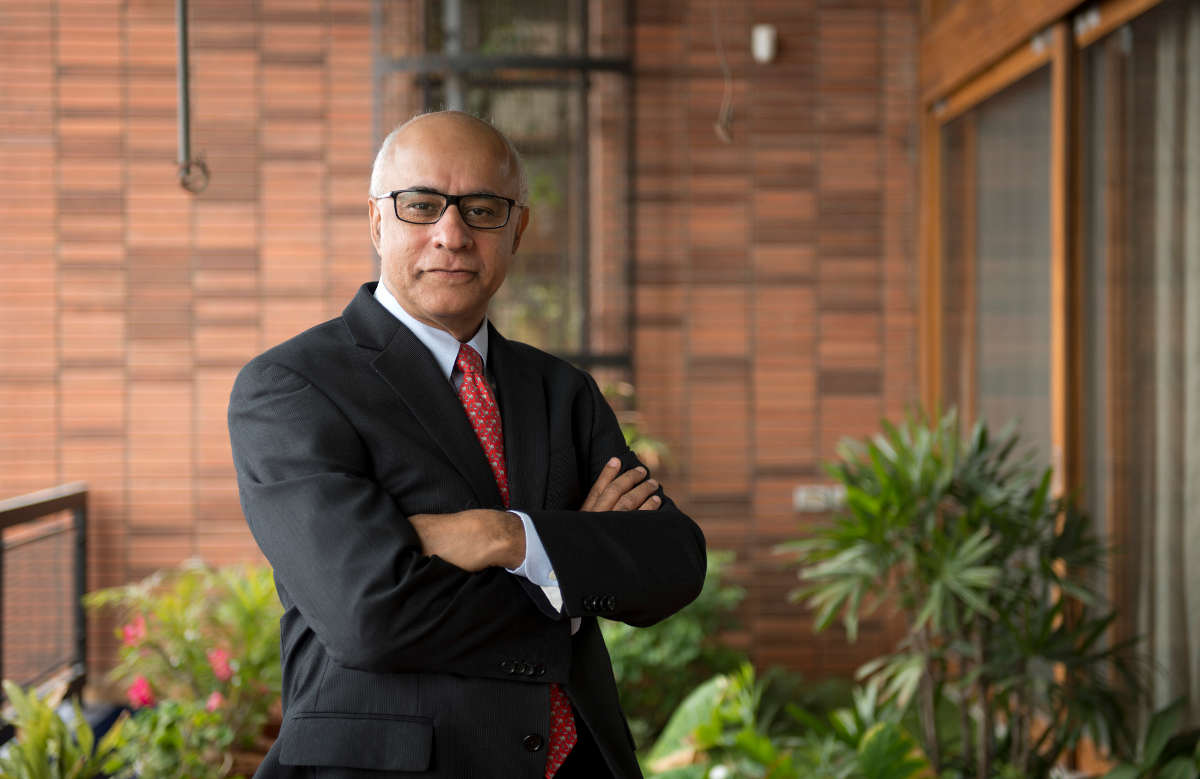This is the season of the saffron; so let me take a stab at the question by looking at the Hindu pantheon. In it, there are three Gods. Brahma is the Supreme Creator; in that sense, He is the founder of the enterprise. Vishnu is a professional manager, He is the CEO who has to then run the enterprise, he has to provide for sustenance and managing scale. Finally, there is Lord Shiva who is in charge of reengineering; he is the guy in charge of creative destruction.
The idea of divided responsibility comes from the competence theory. We need different competences for different phases of an organization's life. Founders tend to be more Brahma like. Of course, some can have Vishnu-like competencies for varied extents of time but few can really creatively destroy what they have built. Incidentally, the idea of creative destruction is not an "end of a phase" kind of apocalyptic event. It needs to happen all the time, like disengaging the bottom 5 percent performers, getting out of a deadly embrace with a customer who was good at a certain phase of the enterprise but is a drag now, or taking a tough call to disengage from a certain line of business.
Founders find these kinds of tasks very difficult. They are not Shiva like. The allegory of the Trinity in the Hindu pantheon is interesting; to start with, it suggests that even Gods are not "super-humans", they are not multi-skilled. So how can we all be? But one thing they know supremely well (that is what makes them Divine) is their knowledge of personal core competence and their ability to co-opt others with complementary skills. There is mutual respect among them, they don't undercut each other and usually, they stay out of each other's business. Shiva doesn't say, hey man, let me try to do some creation out here; nor does Brahma overstay his welcome in perpetuity. That is why there are very few temples for Brahma in the entire world.
Now, let us talk about being Brahma. What qualities are essential to be that?
At the time of creation, I don't think Brahma was a reductive thinker; instead he was in a state of wonder. Let me explain that one first. I believe that most of us, thanks hugely to our education and upbringing, eventually become reductive thinkers. Whatever you show me, I quickly reduce it to something that I can comprehend, deal with. I need to do that so as to be able to explain it logically and reason with it. Illustratively, you show me a building, I quickly see its dimensions, its footprint, and its physical attributes. I don't imagine what the occupants in there are like, what do they do in there and what could be the connection between the physical space and the synaptic space? How could one possibly build something even worthier or more memorable?
This kind of thinking is essential to the creative process; people who start something from scratch are not led by sheer engineering capability or rational thinking, their capacity comes from a sense of wonder. Brahma has a sense of wonder. He is not a reductive thinker. That is why He created the limitless Brahmanda, in it, the countless life forms, from a microbe to a human and who knows what else that are beyond the realm of the Earth. Of course, it is not a good idea for us human versions of Brahma, the Founder to revel in multiplicity - which one is for the God. As founders of earthly enterprises, we need to focus on a fewer things: illustratively one or two product lines, a few category of customers, a prioritized set of verticals so we can differentiate ourselves. In other word, we need to do a good job with one set of things before heading out to another. But the starting point is to have that sense of wonder without which Brahma could not have done what He did.
If you have a question, write in to askbagchi@foundingfuel.com.
[This article was published concurrently in Mint]


